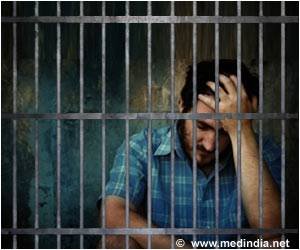Children’s Access to Health Care Suffers When a Parent is Jailed

and authored by Drs. Rohan Khazanchi, Nia Heard-Garris, and Tyler Winkelman from Boston Children’s Hospital/Boston Medical Center, Ann & Robert H. Lurie Children’s Hospital of Chicago, and Hennepin Healthcare, respectively. The researchers evaluated the relationships between having an incarcerated parent and health care use and access throughout childhood and adolescence.
“Exposure to parental incarceration is a key adverse childhood experience with physical and mental health impacts across the course of the lives of these kids,” Dr. Heard-Garris from Lurie Children’s explains. “They are exposed to nearly five times as many adverse childhood experiences as their peers, and we know that is also unfortunately associated with increased incidence of learning and developmental disabilities, physical health conditions, and mental health conditions in adulthood.”
Parental incarceration is also disproportionately concentrated among Black, poor, and rural children. The inequitable and racialized distribution of parental incarceration can lead to other adverse exposures, including child poverty.
Advertisement
“While children and adolescents are living with their other parent or caregiver, parental incarceration can disrupt access to care for them through the loss of health insurance and fewer caregivers to help with responsibilities like routine healthcare visits,” explains Dr. Winkelman, the senior author of the study.
The study’s findings support structural interventions to address care disruption from childhood to early adulthood among individuals exposed to parental incarceration. This spans multiple levels of intervention, including clinical screening tools, institutional efforts to support families and communities impacted by incarceration, and policy interventions to improve access to care for this marginalized population of children.
“Adverse childhood experiences like parental incarceration are not just isolated experiencesthey are symptoms of broader structural challenges,” said Dr. Rohan Khazanchi, the study’s lead author.
“Health and social service organizations should address parental incarceration as a public health issue by developing programs to support families during and after periods of parental incarceration, so that children aren’t penalized. Leaders in the criminal-legal system should also recognize the impact of their sentencing decisions on whole families and identify opportunities to minimize the negative consequences for childrenincluding, when possible, de-carceration.”
Suggested approaches at jails and prisons to help support families include offering training for staff on the impact of parental incarceration on children and families, ensuring parental needs are assessed at intake, linking impacted families to community resources, supporting family-friendly visits between parents, their children, and systems that impact their children (for example, their children’s teachers), implementing evidence-based parent management training programs, involving caregivers in facility programming, and including caregivers and children in reentry planning.
The study authors conclude that trauma-informed, cross-sector partnerships between jails, prisons, policymakers, and clinicians are needed to reduce the life-changing impacts of incarceration on future generations.
Source: Eurekalert
Source link
#Childrens #Access #Health #Care #Suffers #Parent #Jailed



